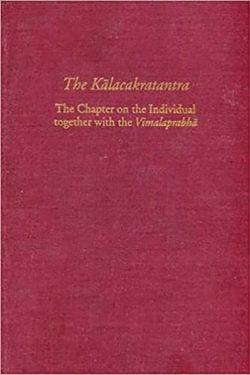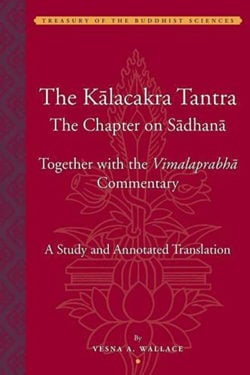Vesna A. Wallace

Vesna A. Wallace is professor of South and Central Asian religions at the University of California at Santa Barbara.
Books, Courses & Podcasts
Vesna Wallace: Exploring the Kalachakra Tantra (#122)
This episode of the Wisdom Podcast, recorded live as a Wisdom Dharma Chat, features a conversation with renowned translator and scholar Vesna A. Wallace. She and host Daniel Aitken discuss the Kalachakra Tantra, including the subtle body in the Kalachakra, what makes the Kalachakra unique, and much more. Vesna teaches South Asian and Inner Asian religions and advanced Sanskrit courses in the Department of Religious Studies at UC Santa Barbara. Her two areas of specialization are Indian Buddhism, particularly Mahayana and Vajrayana traditions, and Mongolian Buddhism. She has authored and translated four books related to Indian Buddhism, three of which pertain to the Kalachakra tantric tradition in India, and has published numerous articles on Indian and Mongolian Buddhism. Her most recent book is an edited volume on Mongolian Buddhism titled Buddhism in Mongolian Culture, History, and Society.

Remember to subscribe to the Wisdom Podcast for more great conversations on Buddhism, meditation, and mindfulness. And please give us a 5-star rating in Apple Podcasts if you enjoy our show—it’s a great support to us and it helps other people find the podcast. Thank you!
The Kālacakratantra
This is the first complete English translation of the second chapter of the esoteric Buddhist Kālacakratantra text, and its eleventh-century commentary, the “Stainless Light (Vimalaprabha),” often accorded pride of place as the first volume of the Tibetan Tengyur. This chapter elaborates the human “individual” in terms of the cosmic human who embodies the cosmos within, showing the homology of macrocosm and microcosm, the outer and inner aspects of the person. The translation is supplemented with copious references to Tibetan commentaries, and includes the first critical edition of the Mongolian version of the second chapter.
The Kālacakra Tantra
This is the first complete English translation of the fourth chapter of the esoteric Buddhist Kālacakra Tantra text and its eleventh-century commentary, the Stainless Light (Vimalaprabhā). Building upon the Chapter on the Cosmos and particularly the Chapter on the Individual (AIBS, 2004)—which provide the theoretical background to the Chapter on Sādhanā, and the reasons for the given structure and contents of the Kālacakra sādhana practice—this fourth chapter illuminates the intricate connection between the practice of the Kālacakra sādhana and the Kālacakra Tantra’s worldview. This fourth chapter describes Buddhist Tantric generation stage practices (utpatti-krama), including instructions on protecting the place of practice, the meditative practices of the origination of the body and the deities abiding in the body, and the diverse mundane sādhanas designed to induce the mundane siddhis. It then also describes the more advanced Buddhist Tantric completion stage practices (saṃpatti-krama), designed to lead directly to the attainment of buddhahood, called here the “Ādibuddha” (Primordial Buddha).
The translation is supplemented with annotations and references to Tibetan commentaries and other esoteric Buddhist works. It also includes the first critical edition of the Mongolian version of the fourth chapter.



